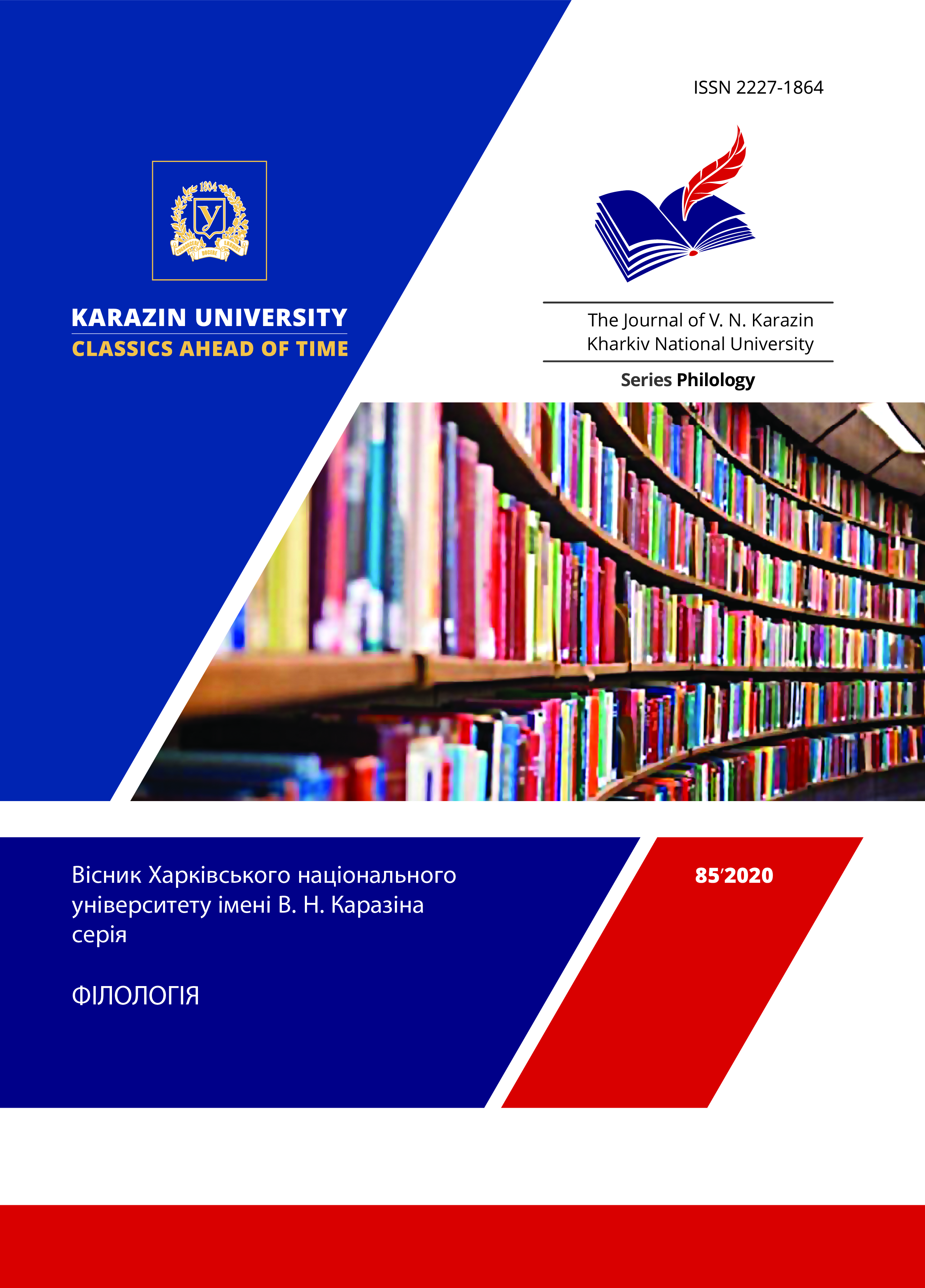The play "Zaoviovnyky" in the correspondence of Y. Yanovskiy and P. Zenkevich
Abstract
The focus of literary scholars on the prosaic part of the heritage of Yuri Yanovskiy leads to a lack of such attention to the dramatic part of the author’s work. Therefore, the study of dramatic texts by Yanovskiy is relevant for modern literary criticism, both for researching and rethinking the period in which Yanovskiy lived, and for understanding his contribution to Ukrainian literature as in general. The article analyzes the correspondence of Yuri Yanovskiy and Pavel Zenkevich from September 1931 to April 1932. The evidence regarding changes in the text of the play “Zaoviovnyky” is revealed and examined. Four sources of influence on changes in the text were revealed - the requirements of the Repertoire Committee, the requirements of the Korsh Theater, under the leadership of the artistic part Dmitry Talnikov, and the private-professional views of Yanovsky's colleagues - Nikolai Kulish and Pavel Zenkevich. Changes were made after the Repertoire Committee, in general approving the play, nevertheless put forward requirements for changes, and Talnikov, being interested in the play as a potential part of the repertoire, also discussed the necessary changes with the author. The changes were made in two stages - firstly by the author himself, and then after proofreading and together with Kulish. The changes affected all the actions in the play, and, as indicated by the author in the correspondence, the fourth action, in particular, was almost rewritten. Individual characters have also changed - Franz, Milli, Wenger, Franz’s mother, and old shepherd. The question about the main idea of the play became discursive in correspondence. Thus, Zenkevich and Talnikov saw the question about buying or building a factory as the main philosophical question of the work, while the author himself noted that this question was posed only for a specific situation and was resolved dialectically. The study reveals an important part of the creative history of «Zaoviovnyky», but it turns out to be necessary to continue the study of the history of the play in particular, and the dramatic heritage of Yanovskiy in general.
Downloads
References
Aheieva, V. (2002) Romannyi eksperyment Yuriia Yanovskoho // Patetychnyi frehat. Roman Yu. Yanovskoho Maister korablia” yak literaturna mistyfikatsiia. K.: Fakt.
Hnatiuk M.M. Tekstolohichni problemy tvorchosti Yuriia Yanovskoho: teoretychnyi aspekt. Script.
Domylivska, L.V. The Yuriy Yanovskiy’ individual style through the system of language and aesthetic paradyghms at the beginning of the 20th century. Script.
Drobiazko, V. S. (1965) Roman Yu. Yanovskoho «Vsadnyky»: Avtoref. dys. kand. fylol. nauk. Instytutu literatury im. T. H. Shevchenka NAN Ukrainy (dali — IL) F.116. 1 page.
IL — F. 148. — S.U. 413 — 1 page.
IL — F. 148. — S.U. 415 — 1 page.
IL — F. 148. — S.U. 420 — 1 page.
IL — F. 148. — S.U. 421 — 1 page.
IL — F. 148. — S.U. 422 — 1 page.
IL — F. 148. — S.U. 639 — 1 page.
IL — F. 148. — S.U. 641 — 2 pages.
IL — F. 148. — S.U. 642 — 1 page.
IL — F. 148. — S.U. 644 — 2 pages.
IL — F. 148. — S.U. 645 — 1 page.
IL — F. 148. — S.U. 646 — 1 page.
IL — F. 148. — S.U. 647 — 4 pages.
IL — F. 148. — S.U. 648 — 4 pages.
Suchkova, O. S. (2009) Ukrainska dramaturhiia 40–50-kh rokiv KhKh st.: problema stanovlennia. Visnyk Mariupolskoho derzhavnoho humanitarnoho universytetu. Ser.: Filolohiia. vol. 2, pp. 255–262.




